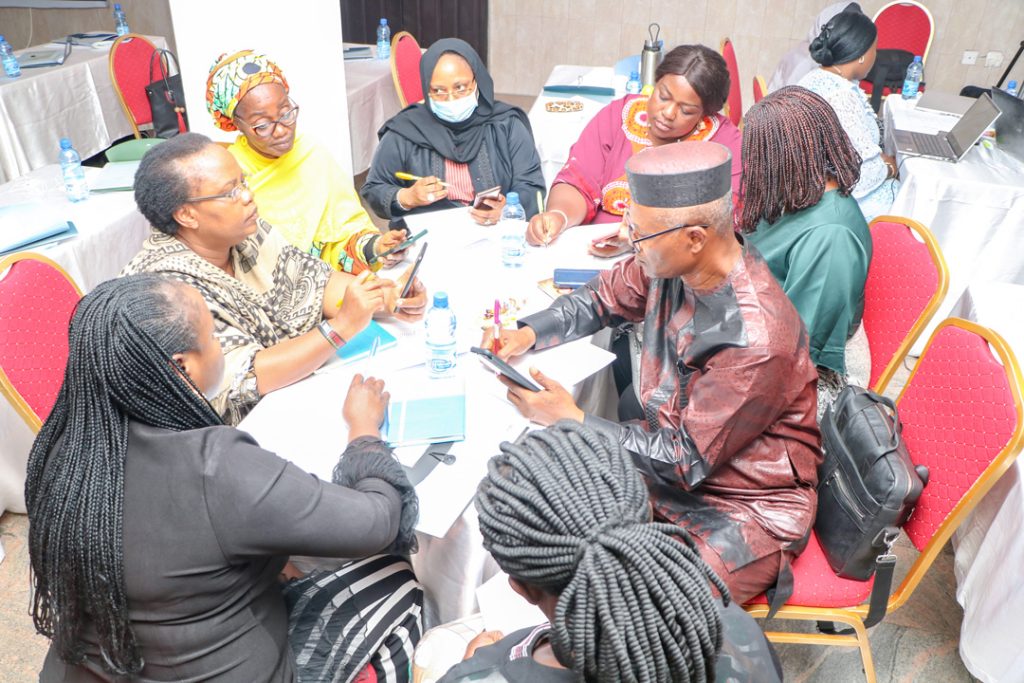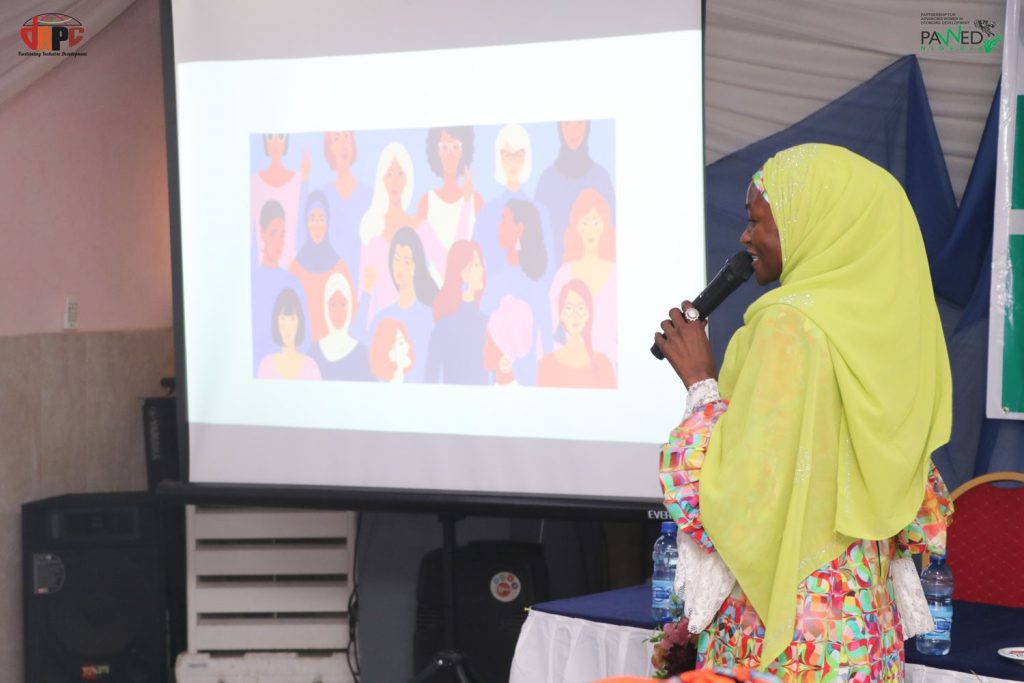INVEST IN WOMEN – INVEST IN LOCALIZATION
DEVELOPMENT PARTNERS AND NIGERIA’S NEW POLICY DIRECTIONS

By
Judith-Ann Walker, Executive
Director development Research and Projects Centre (dRPC)
www.drpcngr.org
International Women’s Day (IWD), March 8th 2024, is now gone but not forgotten. The March 8th celebrations in Nigeria were outstanding and different. For the first time, all segments of Nigerian society united around the global theme of – invest in women, accelerate progress. Strong words of commitment to invest in women were made in public events by convened by associations of women and men of Nigeria’s corporate world. Similar affirmations of commitment came from trade unions, civil society leaders and political office holders in national and state assemblies. The sentiments of the Senate President, Godswill Akpabio best sum up the new-found enthusiasm for investing in women. He is quoted to have referred to Nigerian women as “a full package” … “a special breed” and said further that “we are very conscious that not to invest in women is akin to killing development and destroying a nation”[1].
As the dust settles on the March 8th commitments, accountability civil society organizations (CSOs) across the country have begun to mobilize to track delivery of such commitments. For Nigerian accountability CSOs such as the development Research and Projects Center (dRPC), gearing up to track commitments, there many important insights to be had from the African Union’s guidance on how to implement programs that invest in women.
In a March 8th statement[2], the AU made a strong case for targeted financial and economic inclusion initiatives for women to bridge the gender financing gap in African economies. The AU calls for multi-stakeholder action by government, the private sector, and civil society organisations (CSOs). By calling out CSOs this adds an important piece, missing from most of the conversations of March 8th that is – to invest in women it is best to invest in women’s civil society groups and livelihood associations. Four decades of research, observation and learning since the UN Decade for Women (1975-1985) has shown, conclusively, that women are not just capable, but they excel in catalyzing, accessing and optimizing economic and social investments when they work together in collectives. The former First Lady of Nigeria, Mrs. Maryam Babangida’s famed Better Life for Rural Women program targeted and nurtured women’s cooperatives; the World Bank designed Nigeria for Women-Scale up project works through Women’s Affinity Groups; and the Partnership for Advancing Women in Economic Development (PAWED) funded by the Bill and Melinda Gates Foundation strengthen and positioned Women’s Economic Collectives (WECs) as advocates for women’s economic empowerment (WEE).
Everyone wants to invest in women, but few agree to invest in women’s associations. Not investing in women’s groups is akin to killing all good initiatives for women. Women, working together in professional associations, in asusu saving groups, or cooperatives, support each other to put economic and social investments to good purpose, build resilience and transcend gender barriers ultimately. It is interesting to note that as hyperinflation bites in current-day Nigeria, economic experts have been calling for a return to the old economic solution of Commodity Boards, yet there is no mention of a return to women-led Cooperatives of the 1970s and 1980s.

The current government has strongly committed to supporting women’s livelihood associations. This is evidenced in the merging of the Women’s Business Group (NAWORG) of NACCIMA into a newly created Women’s Chamber of Commerce Industry Mines and Agriculture (WCCIMA) launched in January 2024. The creation of WCCIMA as an umbrella association for Nigerian women engaged in the commanding heights of the Nigerian economy points to a new commitment to inclusion and true investment in women’s associations.
This new policy direction is one that international development partners may well wish to consider supporting as they fashion out components of their Nigeria localisation country strategy[3]. Over the past three years, international development partners led by USAID/Nigeria have been working together and independently to design and review their respective policy commitments to aid localisation. The 2023 Africa CSO Sustainability Index lays out the evidence base for development partners to ensure new domestic initiatives by investing in local Nigerian CSO sectors. The 2023 Sustainability Index shows that while the legal operating environment and financial viability of Nigerian CSOs declined between 2011 and 2022, local Nigerian CSOs have strengthened their organisational capacity, honed and increased their advocacy skills, delivered services and improved their public image as non-governmental development actors. See this summary.
Summary and Analysis of Sustainability of Nigerian CSOs across 7 Indicators 2011-2023[4]
|
Change between 2011 to 2022 |
Legal |
Organizational |
Financial |
Advocacy |
Service |
Sectoral |
Public Image |
|
-0.5 |
0.1 |
-0.1 |
1.2 |
0.7 |
0.5 |
0.5 |
While the CSO Sustainability Index does not disaggregate CSO data by gender leadership, an observation that the dRPC has addressed in a previous publication, the finding that Nigerian CSOs deliver services and advocate for policy change consistently over 11 years suggests that an investment in local women’s CSOs is an asset-building strategy for the future. For investments in women to accelerate progress for women in Africa, it is imperative to consider that progress is not an individual effort in Africa. Progress benefits families, communities, and societies, as well as all collective entities. It may, therefore, be in order to suggest a slight tweak to the global theme to perhaps read – invest in women and their associations to accelerate sustainable progress.
[1] https://www.thecable.ng/iwd-akpabio-says-nigerian-women-are-the-full-package#google_vignette’
[2] https://au.int/en/newsevents/20240308/invest-women-financial-and-economic-inclusion-forum-international-womens-day
[3] https://reliefweb.int/report/nigeria/localization-strategy-nigeria
[4] https://csosi.org/?region=AFRICA
This articles is featured under the DEVEX 2023 hosting – Roots of Change, Under Our Partners section https://pages.devex.com/roots-of-change


